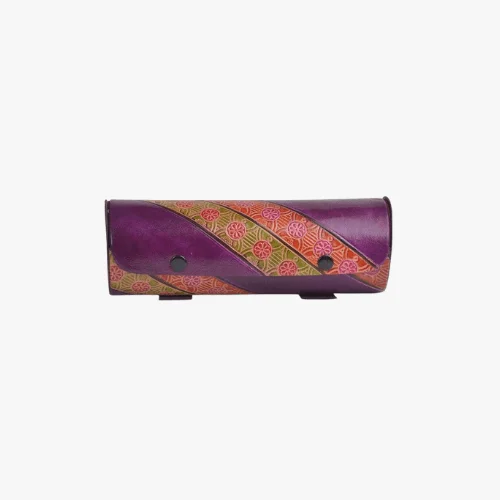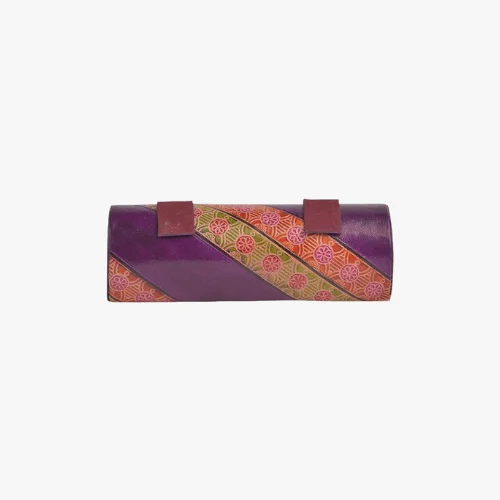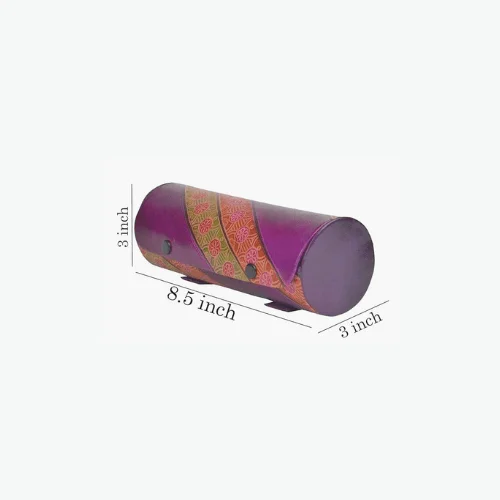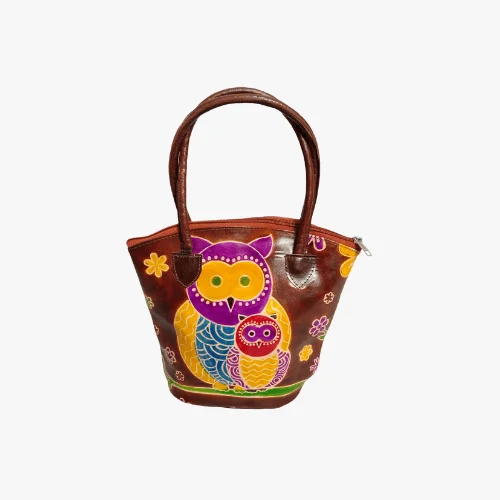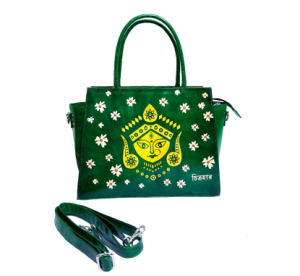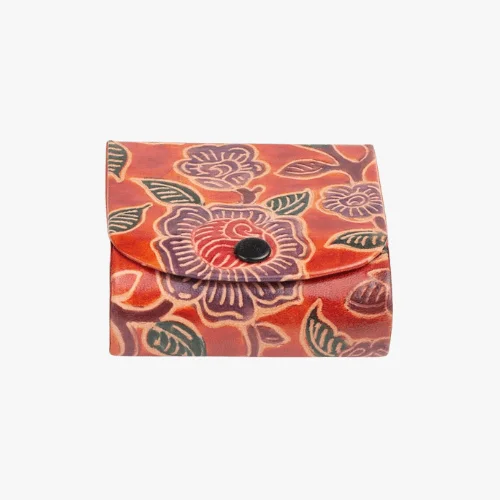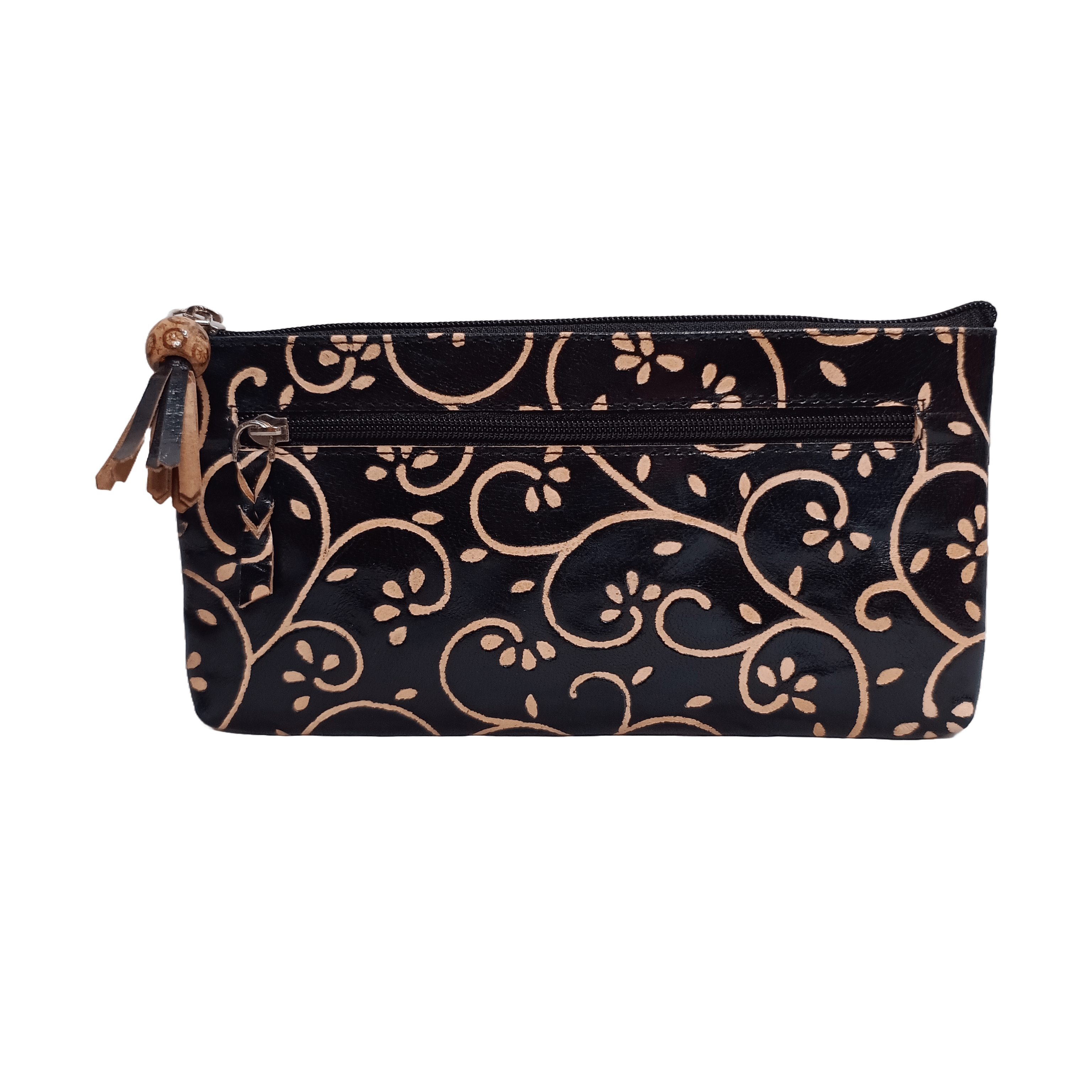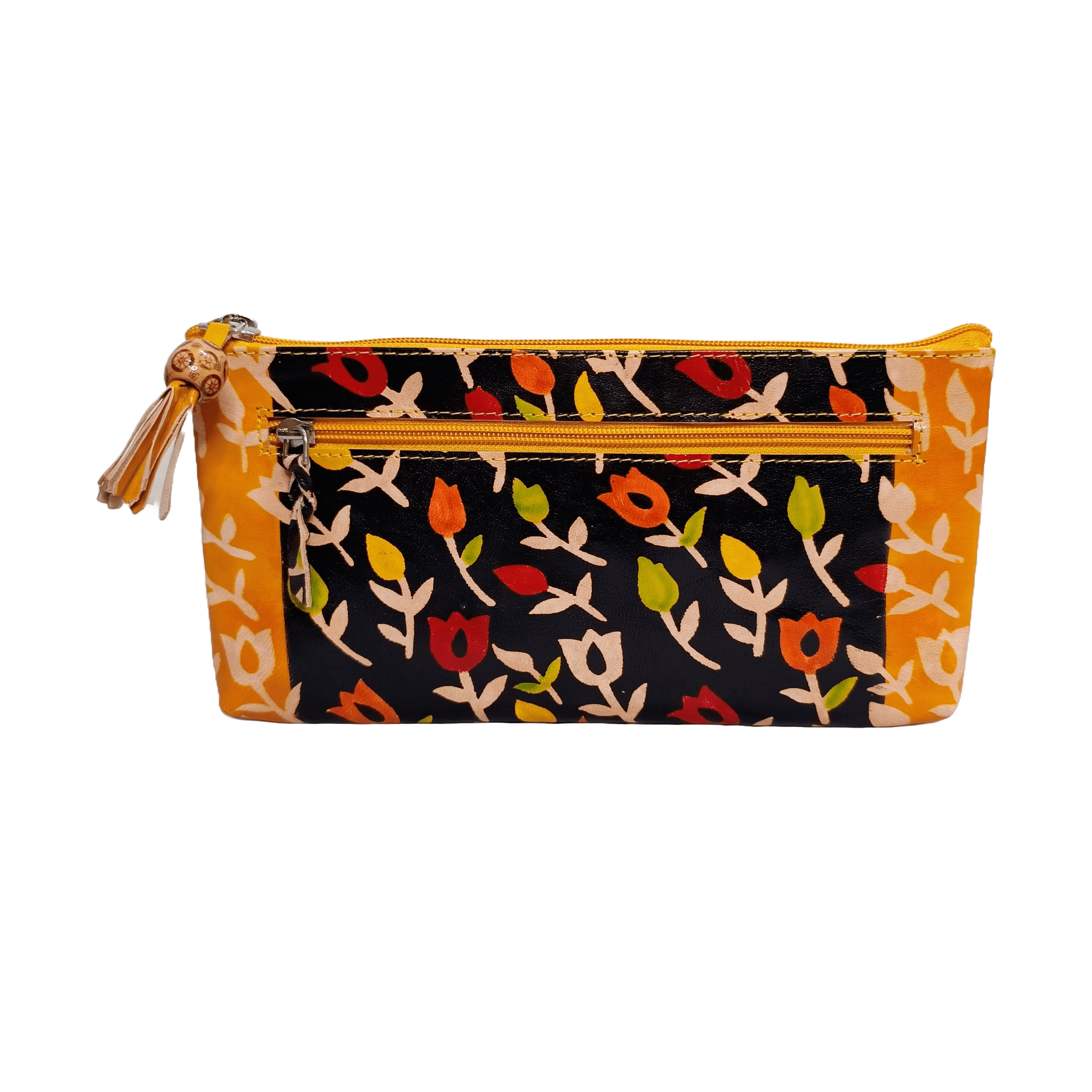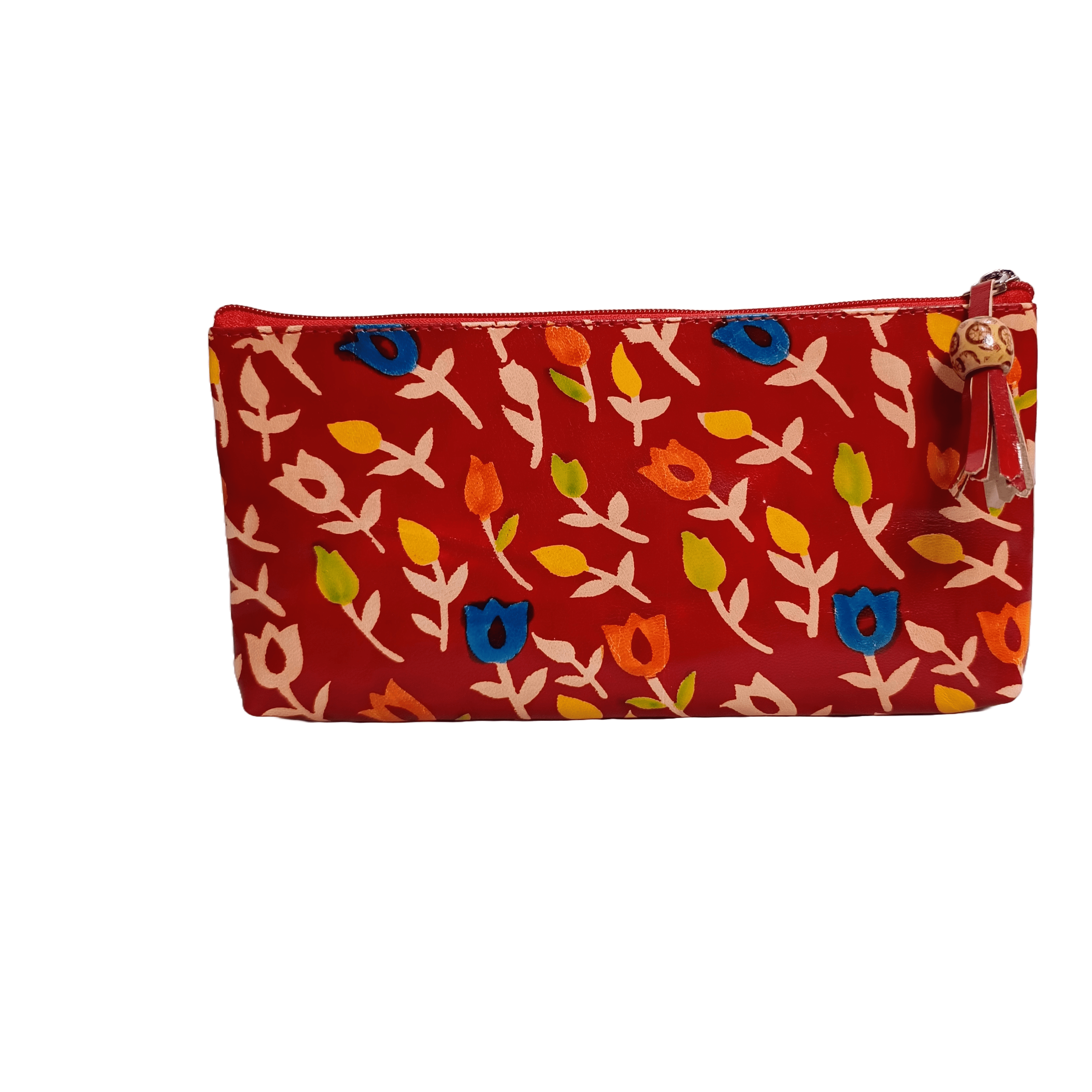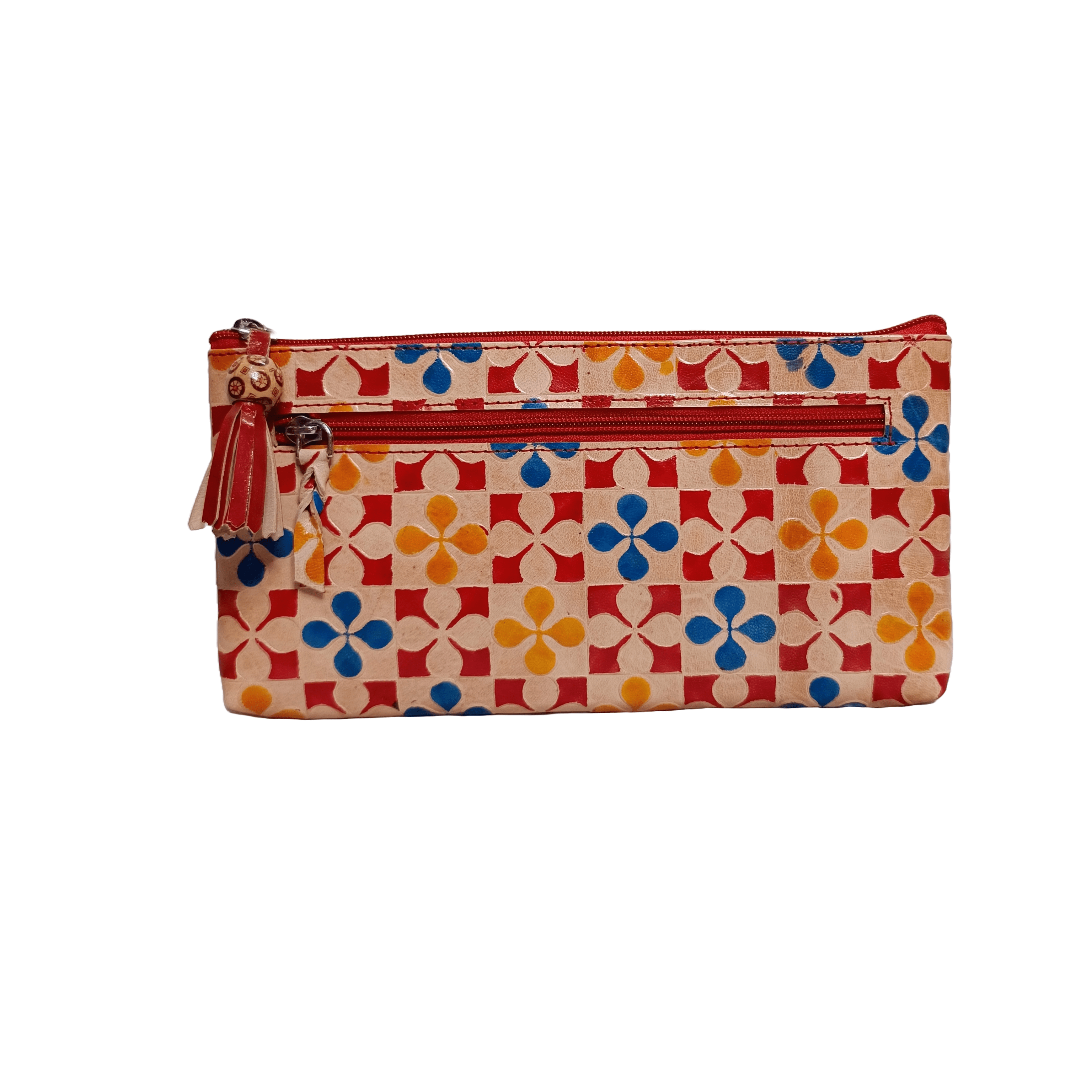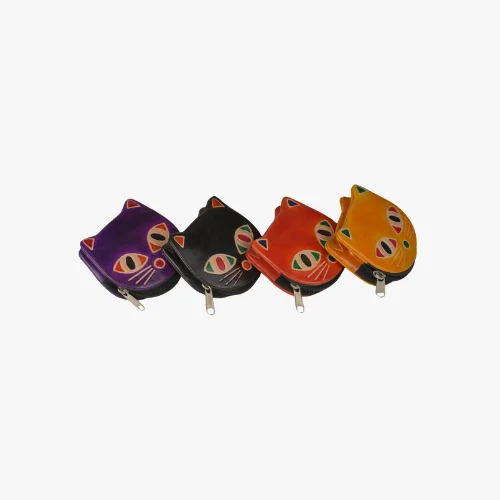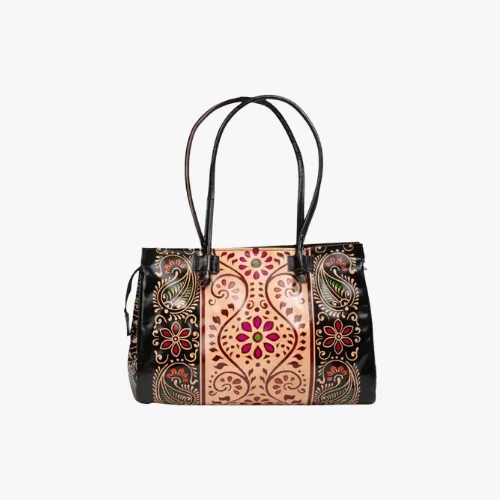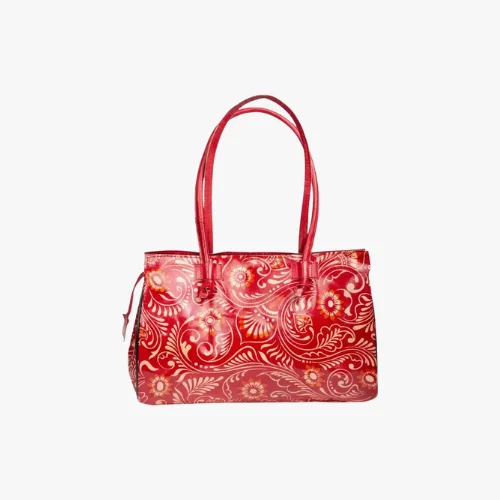Bangle Box Multicolour
The Bangle Box Multicolour Santinikethan Leather Bag exudes vibrancy and elegance. Crafted with genuine Santinikethan leather, it boasts a kaleidoscope of colors, making it a standout accessory. Its spacious interior is designed to accommodate essentials with ease, while the bangle box feature adds functionality and style. Perfect for those who appreciate quality craftsmanship and a pop of color in their accessories, this bag effortlessly blends traditional artistry with contemporary design, making it a versatile and eye-catching addition to any ensemble.
- Need Assistance? Feel free to reach us at support@giheritage.com or contact +91-7483932390 for assistance.
- Note: Although an artisan meticulously crafts their work with great attention to detail, there may still be some minor difference present, showcasing the inherent imperfections that add a touch of uniqueness to each piece. Kindly ignore such minor differences and slight variations in color, weight and dimensions as it adds to the uniqueness of product. Each piece is a one-of-a-kind treasure, making your purchase truly special.
- • GI Origin : West Bengal
- • Product Material : Leather
- • Size : 21.5Cm x 8cm x 8cm
- • Weight : ~ 150 Grams
- • Colour : Multicolour
Santinikatani style refers to the artistic style initiated by Rabindranath Tagore in 1932 as part of the rural construction and rural reconstruction development program of Visva Bharati University. Santiniketan Leather Goods (SLG) are made from vegetable-tanned skin, known for retaining embossed imprints permanently and developing a glossy surface when rubbed. These leather products come in various sizes, styles (stitched or pasted), and designs, including wallets, handbags, pouches, coin purses, and more.
Geographical area of production:
Santiniketan Leather Goods are produced in the vicinity of Santiniketan.
Proof of origin / Brief History (Historical Records):
SLG production began in 1932 at Vichitra Studio under the guidance of Rabindranath Tagore's son, Rathindranath, and his wife Protima Devi, along with local craftsmen. Over the years, production shifted to Surul Kuthibari and eventually to Sriniketan, where stalwarts like Nandalal Bose, Suren Kar, and Ramkinkar Beji further developed the craft. This initiative integrated traditional Indian techniques with modern methods, resulting in distinctive Art Deco-style products.
Method of Production:
Raw Materials: The main raw material is vegetable-tanned sheep and goat skins, along with other materials like paper boards, lining cloth, rubber foam interlining, natural dyes, and various accessories.
Process: Skins are treated, marked, and cut into desired patterns. For block-printed products, graphic designs are imprinted using zinc blocks and colored with spirit-based natural dyes. Batik-dyed products are treated with a solution of Gum Arabic and dyed using mouth spray. The components are then assembled and joined using stitching machines or suitable adhesives.
Uniqueness:
- Selective Animal Skins: Santiniketan Leather is made from selectively chosen sheep and goat skins.
- Glossy and Smooth Finish: The products have a shining, glossy, and smooth finish.
- Permanent Embossed Imprint: The leather retains embossed imprints permanently.
- Vegetable Tanned Leather: The exclusive appearance is achieved through the use of vegetable-tanned leather.
- Traditional Motif & Colors: Products feature traditional motifs and colors, adding to their uniqueness.
- Skilled Artisans: The uniqueness is also attributed to the skilled artisans and manufacturers with decades of experience.
- Unique Geographical Area: The products originate from an area with a hot, dry climate and unique earth composition.

 INR
INR USD - $
USD - $
 CAD - Can$
CAD - Can$
 EUR - €
EUR - €
 GBP - £
GBP - £
 SGD - S$
SGD - S$
 AUD - A$
AUD - A$
 MYR - (RM)
MYR - (RM)
